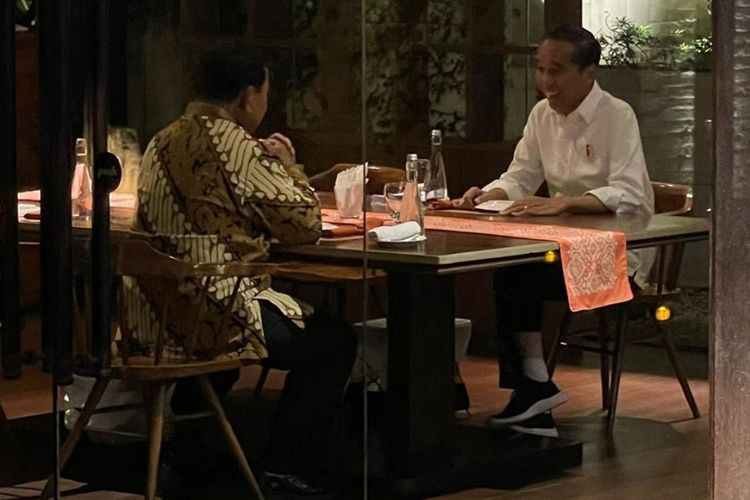Popular Reads
Top Results
Can't find what you're looking for?
View all search resultsPopular Reads
Top Results
Can't find what you're looking for?
View all search resultsNeutral and free
Despite his own pledge of neutrality, in the past few weeks the incumbent President has issued statements and taken actions that could undermine his own claim of staying above the fray.
Change text size
Gift Premium Articles
to Anyone

As Indonesia enters the final stretch of the presidential election campaign season and as voters count down the days to the Feb. 14 balloting, we can certainly sense that there is a growing concern regarding President Joko "Jokowi" Widodo's impartiality in this election.
Despite his own pledge of neutrality, in the past few weeks the incumbent President has issued statements and taken actions that could undermine his own claim to be staying above the fray.
Shortly after the third presidential debate in early January, which saw his Defense Minister Prabowo Subianto being subjected to a dressing down by Indonesian Democratic Party of Struggle (PDI-P) presidential candidate Ganjar Pranowo and opposition candidate Anies Baswedan, President Jokowi suggested that the General Elections Commission (KPU) change the rules for the presidential debate. The KPU rebuffed the call and will stick to the current debate format.
Also in the wake of the debate, the President sat down with Prabowo for a private dinner, which sources claim as the occasion during which the former asked the latter to up his game to further boost his electability rating, which continues to be stuck in the mid-40s.
Following the dinner, the President then took turns in staging meetings with the leaders of the political parties in Prabowo's electoral alliance.
And then of course his presidential tours of the country's two biggest battleground provinces of Central and East Java, which analysts regard as a move designed to drown out the campaign promises made by Ganjar. The presidential Palace has denied the trips are designed to tail Ganjar on the campaign trail.

All of these would not have happened if the President was not personally invested in the race.
With his son Gibran Rakabuming Raka being the vice presidential candidate of Prabowo, a situation which he himself made a significant contribution to creating, it is indeed difficult for anyone to expect a stance of neutrality coming from the President.
And with all the benefit of the incumbency, we can expect that he will likely marshal all tools at his disposal to deliver victory for one camp in the race.
The genie is out of the bottle and it is probably too late to expect the President to change direction, but we have the moral obligation to remind him to stay neutral in the election and that history will not judge him kindly for interfering with the democratic process.
He should have followed the tradition of all post-Reform presidents who ensured a peaceful, orderly and democratic transition of power.
Transitional president BJ Habibie intended to seek reelection in 1999, but after his accountability speech was rejected by the People's Consultative Assembly (MPR), he agreed to step aside and quit politics, albeit begrudgingly.
Muslim cleric Abdurrahman "Gus Dur" Wahid was barely in his second year in office when the legislative branch of the government threatened to impeach him. Gus Dur agreed to resign from office with a final message that he could not risk a violent political confrontation just to allow him to stay in power.
Megawati Soekarnoputri was an incumbent president when she lost in the country's first direct presidential election against her own top security minister in a race that was not even close.
President Jokowi's predecessor Susilo Bambang Yudhoyono in his second term appeared to be content with a middling approval rating and focused his attention on shoring up support for his embattled Democratic Party.
In the past two decades, we have had a tradition of the incumbent staying neutral in the general election and that good practice should continue.
If not, the future of our democracy is at stake.










